Dariush Kari
Joint Source-Environment Adaptation for Deep Learning-Based Underwater Acoustic Source Ranging
Mar 30, 2025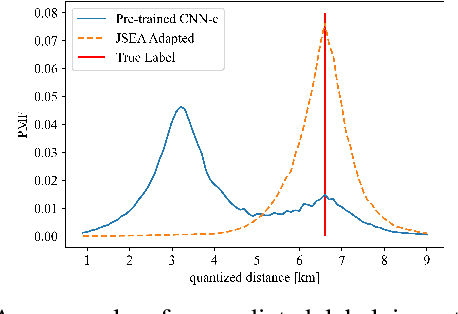
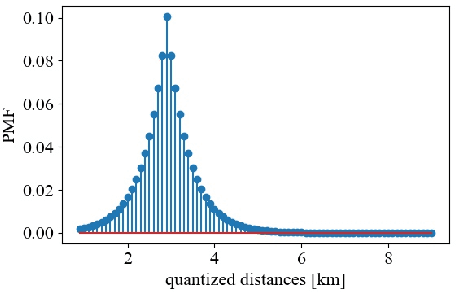
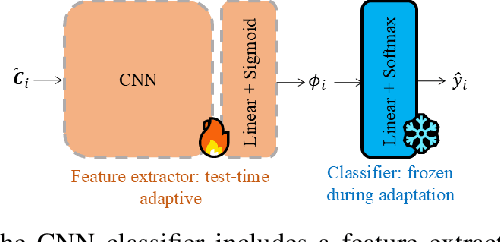
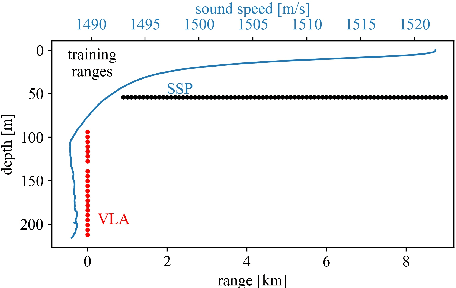
Abstract:In this paper, we propose a method to adapt a pre-trained deep-learning-based model for underwater acoustic localization to a new environment. We use unsupervised domain adaptation to improve the generalization performance of the model, i.e., using an unsupervised loss, fine-tune the pre-trained network parameters without access to any labels of the target environment or any data used to pre-train the model. This method improves the pre-trained model prediction by coupling that with an almost independent estimation based on the received signal energy (that depends on the source). We show the effectiveness of this approach on Bellhop generated data in an environment similar to that of the SWellEx-96 experiment contaminated with real ocean noise from the KAM11 experiment.
Joint Source-Environment Adaptation of Data-Driven Underwater Acoustic Source Ranging Based on Model Uncertainty
Mar 30, 2025



Abstract:Adapting pre-trained deep learning models to new and unknown environments is a difficult challenge in underwater acoustic localization. We show that although pre-trained models have performance that suffers from mismatch between the training and test data, they generally exhibit a higher ``implied uncertainty'' in environments where there is more mismatch. Leveraging this notion of implied uncertainty, we partition the test samples into more certain and less certain sets, and implement an estimation method using the certain samples to improve the labeling for uncertain samples, which helps to adapt the model. We use an efficient method to quantify model prediction uncertainty, and an innovative approach to adapt a pre-trained model to unseen underwater environments at test time. This eliminates the need for labeled data from the target environment or the original training data. This adaptation is enhanced by integrating an independent estimate based on the received signal energy. We validate the approach extensively using real experimental data, as well as synthetic data consisting of model-generated signals with real ocean noise. The results demonstrate significant improvements in model prediction accuracy, underscoring the potential of the method to enhance underwater acoustic localization in diverse, noisy, and unknown environments.
Mismatch-Robust Underwater Acoustic Localization Using A Differentiable Modular Forward Model
Mar 30, 2025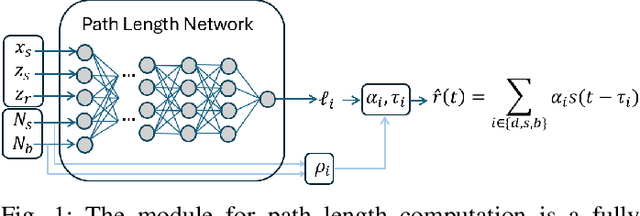
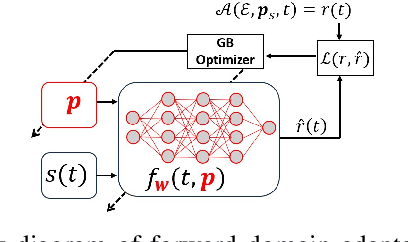
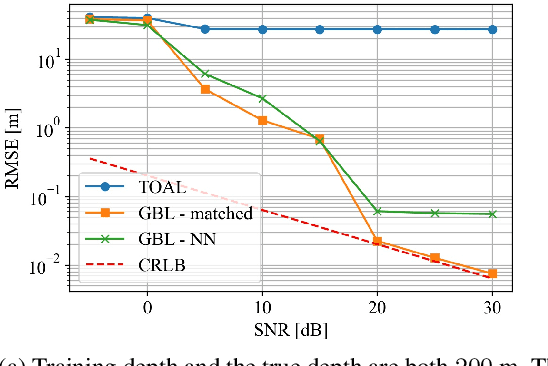
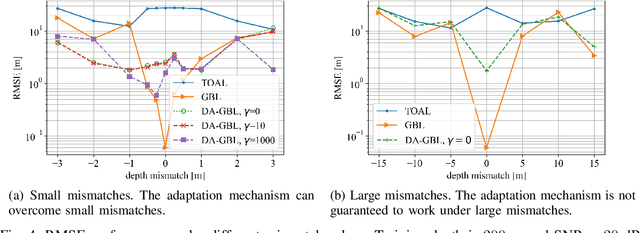
Abstract:In this paper, we study the underwater acoustic localization in the presence of environmental mismatch. Especially, we exploit a pre-trained neural network for the acoustic wave propagation in a gradient-based optimization framework to estimate the source location. To alleviate the effect of mismatch between the training data and the test data, we simultaneously optimize over the network weights at the inference time, and provide conditions under which this method is effective. Moreover, we introduce a physics-inspired modularity in the forward model that enables us to learn the path lengths of the multipath structure in an end-to-end training manner without access to the specific path labels. We investigate the validity of the assumptions in a simple yet illustrative environment model.
Adaptive and Efficient Nonlinear Channel Equalization for Underwater Acoustic Communication
Jan 06, 2016



Abstract:We investigate underwater acoustic (UWA) channel equalization and introduce hierarchical and adaptive nonlinear channel equalization algorithms that are highly efficient and provide significantly improved bit error rate (BER) performance. Due to the high complexity of nonlinear equalizers and poor performance of linear ones, to equalize highly difficult underwater acoustic channels, we employ piecewise linear equalizers. However, in order to achieve the performance of the best piecewise linear model, we use a tree structure to hierarchically partition the space of the received signal. Furthermore, the equalization algorithm should be completely adaptive, since due to the highly non-stationary nature of the underwater medium, the optimal MSE equalizer as well as the best piecewise linear equalizer changes in time. To this end, we introduce an adaptive piecewise linear equalization algorithm that not only adapts the linear equalizer at each region but also learns the complete hierarchical structure with a computational complexity only polynomial in the number of nodes of the tree. Furthermore, our algorithm is constructed to directly minimize the final squared error without introducing any ad-hoc parameters. We demonstrate the performance of our algorithms through highly realistic experiments performed on accurately simulated underwater acoustic channels.
A new robust adaptive algorithm for underwater acoustic channel equalization
Dec 19, 2015

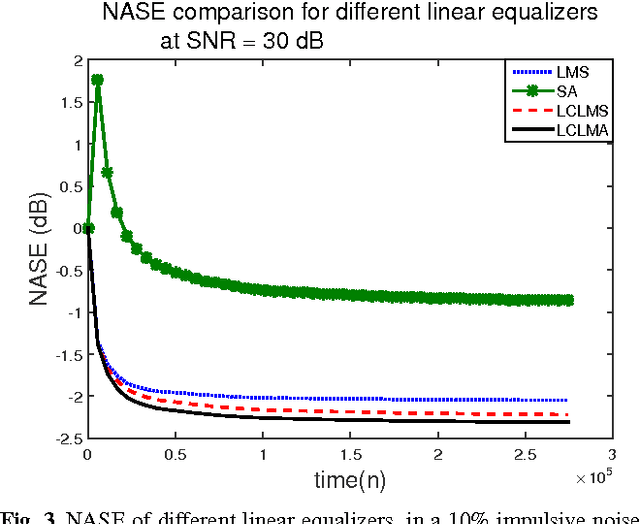

Abstract:We introduce a novel family of adaptive robust equalizers for highly challenging underwater acoustic (UWA) channel equalization. Since the underwater environment is highly non-stationary and subjected to impulsive noise, we use adaptive filtering techniques based on a relative logarithmic cost function inspired by the competitive methods from the online learning literature. To improve the convergence performance of the conventional linear equalization methods, while mitigating the stability issues, we intrinsically combine different norms of the error in the cost function, using logarithmic functions. Hence, we achieve a comparable convergence performance to least mean fourth (LMF) equalizer, while significantly enhancing the stability performance in such an adverse communication medium. We demonstrate the performance of our algorithms through highly realistic experiments performed on accurately simulated underwater acoustic channels.
 Add to Chrome
Add to Chrome Add to Firefox
Add to Firefox Add to Edge
Add to Edge